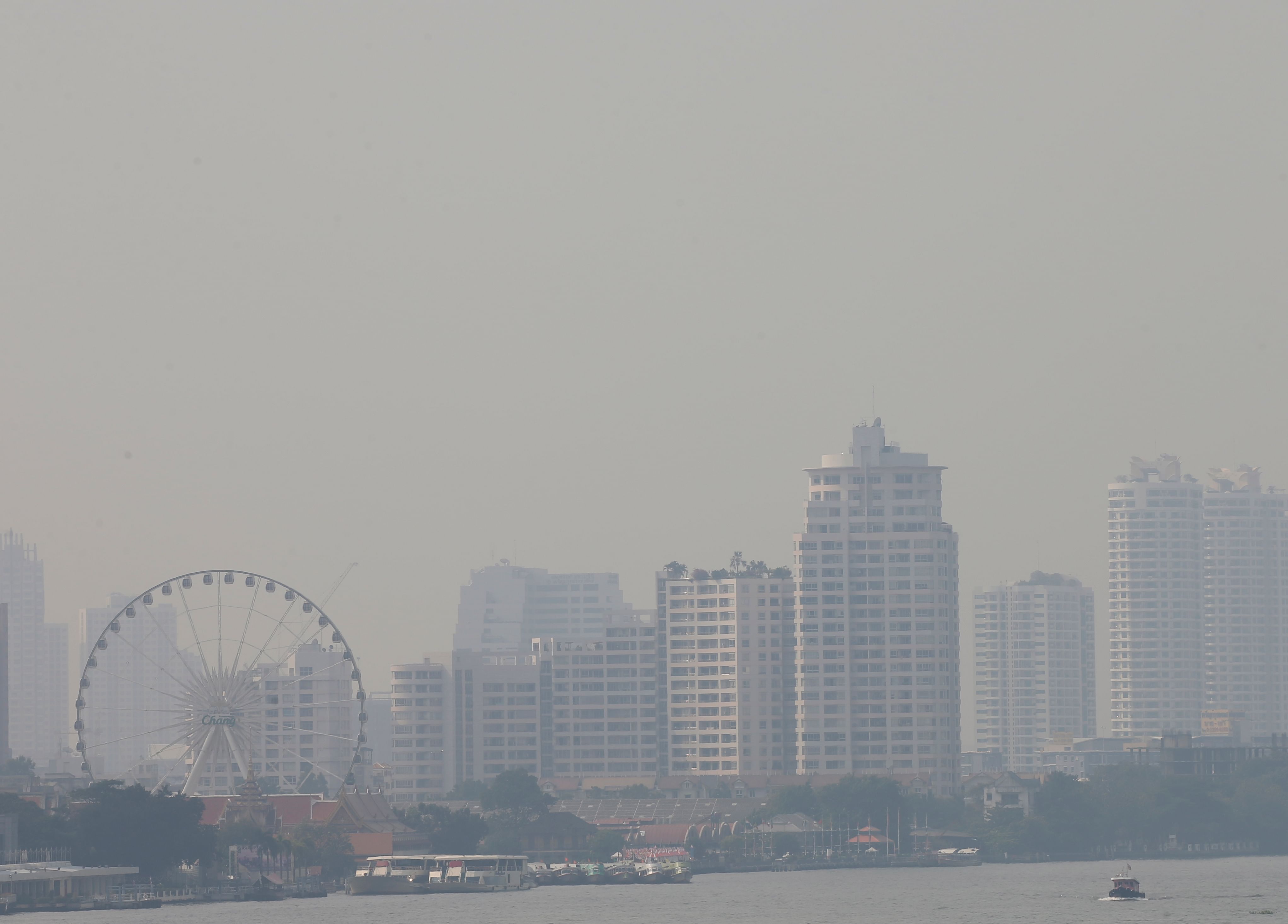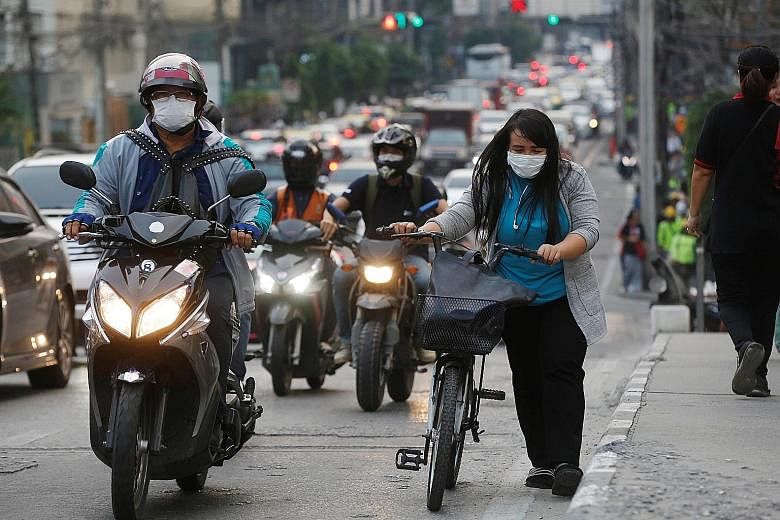BANGKOK • Thailand is set to deploy rainmaking planes to seed clouds in an effort to tackle the pall of pollution that has shrouded the capital, Bangkok, in recent weeks.
The technique involves dispersing chemicals into the air to aid cloud condensation, which should in theory result in rain.
"The Department of Royal Rainmaking and Agricultural Aviation... expects the rainmaking to be done (today) but it depends on wind and humidity levels," Mr Pralong Dumrongthai, the director-general of Thailand's Pollution Control Department, told reporters.
As residents woke up yesterday to yet another day of murky air blanketing their construction-busy city, environment group Greenpeace said Bangkok was now the 10th most polluted city in the world, rivalling some places in China.
Reasons for the persistent smog include combustion exhaust from traffic-strewn roads, the burning of fields by farmers outside the city, and pollutants from factories.
Visibility has been reduced to one kilometre is some areas.
Public discontent has surfaced on Thai social media and television, with pollution-related hashtags trending and TV hosts advising viewers on the types of face masks they should wear.

Air Visual, an independent online air quality index (AQI) monitor, pegged Bangkok at "unhealthy" levels measuring 156 AQI yesterday - though the number has often been higher in the past two months.
But the pollution department has played down the dangers of the persistent haze, which the government judges using a different set of measurements to gauge the concentration of harmful microscopic particles known as PM2.5.
Mr Pralong said Bangkok recently experienced peak PM2.5 levels of 102 micrograms per cubic metre but the reading yesterday was under 90.
"Our PM figure is high but it is not a crisis yet," he said. "We are not in the range of 120-150 where all people have to wear masks all the time when they are out."
However, Greenpeace's Thailand director Tara Buakamsri said immediate action should be taken by the authorities, including reducing the number of cars and closing schools in high-risk areas. "The pollution issues are more and more frequent in Bangkok. We need smarter air quality management."
In recent weeks, municipal workers have sprayed water on the roads and into the air in Bangkok to help clear the smog. Also, people have been urged to stay indoors.
Kasetsart University's associate professor of economics Witsanu Attavanich said he feared state agencies and the public were underestimating the dangers of air pollution, adding that proper prevention and mitigation steps were inadequate.
The China-based air-pollution monitoring site aqicn.org reported that the PM2.5 AQI in Bangkok on Sunday reached a peak of 195, an unhealthy level, while some areas such as Bang Khen district were at hazardous levels, with PM2.5 AQI at 394 on Sunday morning.
It also forecast harmful levels of pollution in Bangkok every morning for the rest of the week because there was little wind.
Still, people wearing face masks remain a rare sight around the Thai capital. And many children and seniors can be seen going about their outdoor activities as usual.
"Air pollution is really a silent killer and many Thais underestimate the danger to their health, so not many people protect themselves by wearing a face mask or installing air purifiers at home," Prof Witsanu said.
Environmental health expert Sonthi Kotchawat has warned that PM2.5 is harmful because its very fine dust particles are small enough to pass through a person's lungs and enter the bloodstream. Long exposure can cause respiratory diseases, including lung cancer, heart disease and stroke, he said.
Bangkok faces a polluted new year
Thailand is set to deploy cloud-seeding planes, South Korea is stopping old cars from being driven on the road and Britain wants to phase out diesel-only trains as nations fight back to reduce air pollution shrouding their cities at the start of the new year. Bangkok (left) has been hit by persistent smog caused by a mix of exhaust from vehicles, the burning of fields by farmers outside the city and pollutants from factories.

